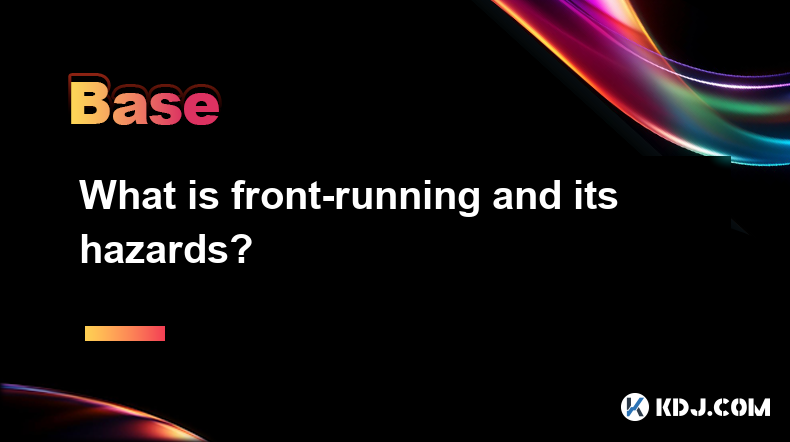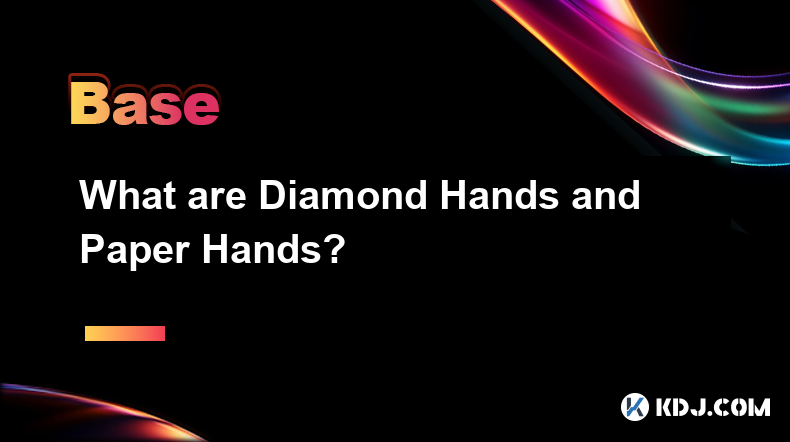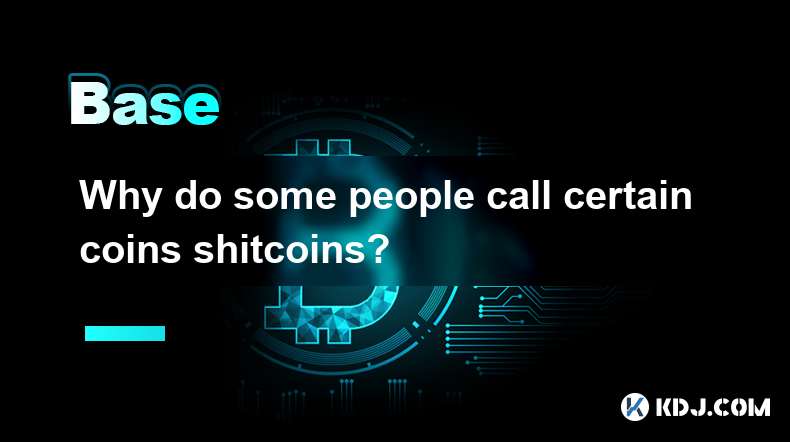-
 Bitcoin
Bitcoin $84,391.0367
0.45% -
 Ethereum
Ethereum $1,580.5326
-1.71% -
 Tether USDt
Tether USDt $1.0000
0.00% -
 XRP
XRP $2.1020
-1.01% -
 BNB
BNB $585.0332
0.44% -
 Solana
Solana $132.3882
3.22% -
 USDC
USDC $0.9999
0.00% -
 TRON
TRON $0.2501
-0.38% -
 Dogecoin
Dogecoin $0.1563
0.42% -
 Cardano
Cardano $0.6164
-0.67% -
 UNUS SED LEO
UNUS SED LEO $9.4118
0.47% -
 Chainlink
Chainlink $12.4004
-0.13% -
 Avalanche
Avalanche $18.9703
-2.15% -
 Stellar
Stellar $0.2377
-0.90% -
 Toncoin
Toncoin $2.8968
-1.80% -
 Shiba Inu
Shiba Inu $0.0...01186
0.36% -
 Sui
Sui $2.0983
-1.33% -
 Hedera
Hedera $0.1587
-0.48% -
 Bitcoin Cash
Bitcoin Cash $320.8751
-0.66% -
 Litecoin
Litecoin $75.3033
-0.57% -
 Polkadot
Polkadot $3.5865
-0.04% -
 Dai
Dai $1.0002
0.01% -
 Hyperliquid
Hyperliquid $15.9321
4.16% -
 Bitget Token
Bitget Token $4.3200
0.88% -
 Ethena USDe
Ethena USDe $0.9993
0.01% -
 Pi
Pi $0.6102
-8.34% -
 Monero
Monero $217.7612
1.56% -
 Uniswap
Uniswap $5.1880
-1.30% -
 OKB
OKB $51.4163
0.77% -
 Pepe
Pepe $0.0...07221
3.34%
What is front-running and its hazards?
Front-running in crypto involves using advanced knowledge of transactions to gain an unfair trading advantage, often on DeFi platforms, impacting market integrity.
Apr 08, 2025 at 10:56 am

Front-running in the cryptocurrency world refers to the unethical practice where an individual or entity uses advanced knowledge of upcoming transactions to gain an unfair advantage in trading. This practice is particularly prevalent in decentralized finance (DeFi) platforms and can have significant impacts on market integrity and fairness. In this article, we will explore what front-running is, how it occurs, and the hazards it poses to the cryptocurrency ecosystem.
What is Front-Running?
Front-running is a form of market manipulation where a trader executes orders on the basis of advanced, non-public information about upcoming transactions. In traditional financial markets, this might involve a broker trading on information about a large client order before executing that order. In the context of cryptocurrencies, front-running often occurs on decentralized exchanges (DEXs) and DeFi platforms.
In these environments, front-running can be facilitated by automated bots that scan the blockchain for pending transactions. These bots can detect large orders before they are executed and quickly place their own orders to capitalize on the anticipated price movement. This practice can lead to significant profits for the front-runner at the expense of the original trader.
How Does Front-Running Occur in Cryptocurrency?
Front-running in the cryptocurrency space typically involves the use of transaction ordering and miner extractable value (MEV). Here's how it works:
Transaction Ordering: On a blockchain, transactions are grouped into blocks and processed in a specific order. Front-runners exploit this by submitting their transactions with higher gas fees, ensuring their transactions are processed before the original ones. This allows them to buy or sell assets just before a large order impacts the market price.
Miner Extractable Value (MEV): Miners, who validate transactions and add them to the blockchain, can also engage in front-running. They can reorder transactions within a block to maximize their profits. This practice is known as MEV, where miners extract additional value from the transactions they process.
The Hazards of Front-Running
Front-running poses several hazards to the cryptocurrency ecosystem, affecting both individual traders and the overall market integrity.
Unfair Advantage: Front-running gives an unfair advantage to those with the technological means to detect and act on pending transactions. This can discourage new participants from entering the market, as they feel the playing field is not level.
Increased Costs: Traders who are front-run may end up paying higher prices for assets due to the price impact of the front-runner's transactions. This can lead to increased trading costs and reduced liquidity in the market.
Market Manipulation: Front-running can contribute to market manipulation, as large orders can be used to artificially inflate or deflate prices. This can lead to a loss of trust in the market and undermine the principles of decentralized finance.
Regulatory Scrutiny: The prevalence of front-running can attract regulatory attention, potentially leading to stricter regulations that could stifle innovation in the DeFi space.
Examples of Front-Running in DeFi
To better understand front-running, let's look at a few examples from the DeFi ecosystem:
Uniswap: One of the most popular DEXs, Uniswap, has been a prime target for front-running bots. These bots monitor the mempool for large swap transactions and quickly execute their own swaps to profit from the price impact.
Flash Loans: Flash loans, which allow users to borrow large amounts of cryptocurrency without collateral, are often used in conjunction with front-running strategies. Traders can borrow funds, execute a front-run trade, and repay the loan within the same transaction, all at no upfront cost.
Liquidations: In DeFi lending platforms, front-runners can detect impending liquidations and quickly buy the collateral at a discount before the liquidation is processed, profiting from the price difference.
Mitigating Front-Running Risks
While completely eliminating front-running is challenging, there are several strategies that can help mitigate its risks:
Using Private Transactions: Some platforms offer private transaction options, where the details of the transaction are not visible until it is executed. This can make it harder for front-runners to detect and act on pending orders.
Time-Weighted Average Price (TWAP) Orders: TWAP orders spread out the execution of a large order over time, reducing the price impact and making it harder for front-runners to profit.
Fair Ordering Protocols: Some blockchain projects are developing fair ordering protocols that aim to randomize or otherwise ensure a fair ordering of transactions, reducing the ability of front-runners to manipulate transaction order.
Decentralized Governance: Platforms that implement decentralized governance can allow the community to vote on measures to combat front-running, such as adjusting transaction fees or implementing new protocols.
The Impact on Individual Traders
For individual traders, front-running can be particularly harmful. Here's how it affects them:
Loss of Profits: When a trader's order is front-run, they may end up buying at a higher price or selling at a lower price than they intended, resulting in reduced profits or increased losses.
Increased Slippage: Front-running can lead to increased slippage, where the executed price of a trade differs significantly from the expected price. This can be especially problematic for large orders.
Reduced Confidence: The knowledge that their trades may be front-run can reduce traders' confidence in the market, leading them to trade less frequently or avoid certain platforms altogether.
The Broader Market Implications
Front-running also has broader implications for the cryptocurrency market as a whole:
Market Volatility: Front-running can contribute to increased market volatility, as large orders are quickly followed by front-run trades that can cause rapid price movements.
Liquidity Issues: If traders become wary of front-running, they may be less willing to provide liquidity to the market, leading to reduced liquidity and wider bid-ask spreads.
Reputation Damage: The prevalence of front-running can damage the reputation of DeFi platforms and the broader cryptocurrency ecosystem, making it harder to attract new users and investors.
Frequently Asked Questions
Q: Can front-running be completely eliminated in the cryptocurrency space?
A: While it is challenging to completely eliminate front-running, various strategies and technologies are being developed to mitigate its impact. These include private transactions, fair ordering protocols, and decentralized governance measures.
Q: How can I protect myself from front-running when trading on DeFi platforms?
A: To protect yourself from front-running, consider using private transaction options if available, spreading out large orders using TWAP, and choosing platforms that implement measures to combat front-running.
Q: Are there any legal consequences for front-running in the cryptocurrency space?
A: The legal consequences of front-running in the cryptocurrency space can vary by jurisdiction. In some regions, front-running may be considered a form of market manipulation and could lead to regulatory action. However, the decentralized nature of many cryptocurrency platforms can make enforcement challenging.
Q: How does front-running affect the overall trust in DeFi platforms?
A: Front-running can significantly erode trust in DeFi platforms, as it creates an unfair playing field and can lead to perceptions of market manipulation. This loss of trust can deter new users and investors from participating in the DeFi ecosystem.
Disclaimer:info@kdj.com
The information provided is not trading advice. kdj.com does not assume any responsibility for any investments made based on the information provided in this article. Cryptocurrencies are highly volatile and it is highly recommended that you invest with caution after thorough research!
If you believe that the content used on this website infringes your copyright, please contact us immediately (info@kdj.com) and we will delete it promptly.
- Neutrl, a decentralized finance (DeFi) protocol and the provider of the synthetic dollar NUSD, has raised $5 million in a seed round
- 2025-04-17 04:35:13
- Saylor's Coded Message : A Strategic Declaration
- 2025-04-17 04:35:13
- MANTRA Labs Releases Post-Mortem Report Detailing the 92% Drop of Its OM Token
- 2025-04-17 04:30:13
- Janover Inc. Updates Its Solana (SOL) Accumulation Strategy by Partnering with BitGo
- 2025-04-17 04:30:13
- Onyxcoin (XCN) Price Dips 3% Despite Gaining an Impressive 95% over the Last Seven Days. Will the Rally Continue?
- 2025-04-17 04:25:14
- Introducing Stabull Finance: The Decentralized Exchange (DEX) for Trading Tokenized Real World Assets (RWAs)
- 2025-04-17 04:25:14
Related knowledge

What does Floor Price mean in the NFT market
Apr 17,2025 at 12:42am
The term Floor Price is a critical concept within the NFT (Non-Fungible Token) market, serving as a key indicator for both buyers and sellers. In essence, the floor price represents the lowest price at which an NFT from a particular collection is currently listed for sale on a marketplace. This price point is crucial for understanding the perceived valu...

What is Alpha? How to find Alpha opportunities?
Apr 16,2025 at 12:42pm
What is Alpha?Alpha is a term widely used in the financial world, including the cryptocurrency market, to describe the ability of an investment to outperform a benchmark. In the context of cryptocurrencies, alpha refers to the excess return an investor achieves over the market's average return. For example, if the overall crypto market grows by 10% in a...

Why do cryptocurrency enthusiasts like to say GM?
Apr 16,2025 at 06:21am
In the world of cryptocurrency, the term 'GM' has become a popular greeting among enthusiasts. GM stands for 'Good Morning,' and its widespread use within the crypto community has a deeper significance than just a simple greeting. This article delves into the reasons why cryptocurrency enthusiasts like to say GM, exploring its origins, cultural signific...

What do WAGMI and NGMI mean?
Apr 16,2025 at 08:08pm
In the world of cryptocurrency, you might often come across the acronyms WAGMI and NGMI. These terms have become part of the crypto slang and are frequently used in discussions, tweets, and forums related to digital currencies. Let's delve into what these terms mean, their origins, and how they are used within the crypto community. Understanding WAGMIWA...

What are Diamond Hands and Paper Hands?
Apr 16,2025 at 10:42am
In the world of cryptocurrencies, the terms Diamond Hands and Paper Hands are frequently used to describe the behavior and mindset of investors, particularly in volatile markets. These terms originated from online communities and have become a significant part of the crypto lexicon, often used to describe the level of resilience and commitment an invest...

Why do some people call certain coins shitcoins?
Apr 17,2025 at 03:21am
Understanding the Term 'Shitcoin'The term 'shitcoin' is a colloquialism within the cryptocurrency community that is used to describe cryptocurrencies that are perceived as having little to no value or potential. It is a derogatory term, often used to express disdain or skepticism about the viability of certain digital assets. The use of 'shitcoin' is su...

What does Floor Price mean in the NFT market
Apr 17,2025 at 12:42am
The term Floor Price is a critical concept within the NFT (Non-Fungible Token) market, serving as a key indicator for both buyers and sellers. In essence, the floor price represents the lowest price at which an NFT from a particular collection is currently listed for sale on a marketplace. This price point is crucial for understanding the perceived valu...

What is Alpha? How to find Alpha opportunities?
Apr 16,2025 at 12:42pm
What is Alpha?Alpha is a term widely used in the financial world, including the cryptocurrency market, to describe the ability of an investment to outperform a benchmark. In the context of cryptocurrencies, alpha refers to the excess return an investor achieves over the market's average return. For example, if the overall crypto market grows by 10% in a...

Why do cryptocurrency enthusiasts like to say GM?
Apr 16,2025 at 06:21am
In the world of cryptocurrency, the term 'GM' has become a popular greeting among enthusiasts. GM stands for 'Good Morning,' and its widespread use within the crypto community has a deeper significance than just a simple greeting. This article delves into the reasons why cryptocurrency enthusiasts like to say GM, exploring its origins, cultural signific...

What do WAGMI and NGMI mean?
Apr 16,2025 at 08:08pm
In the world of cryptocurrency, you might often come across the acronyms WAGMI and NGMI. These terms have become part of the crypto slang and are frequently used in discussions, tweets, and forums related to digital currencies. Let's delve into what these terms mean, their origins, and how they are used within the crypto community. Understanding WAGMIWA...

What are Diamond Hands and Paper Hands?
Apr 16,2025 at 10:42am
In the world of cryptocurrencies, the terms Diamond Hands and Paper Hands are frequently used to describe the behavior and mindset of investors, particularly in volatile markets. These terms originated from online communities and have become a significant part of the crypto lexicon, often used to describe the level of resilience and commitment an invest...

Why do some people call certain coins shitcoins?
Apr 17,2025 at 03:21am
Understanding the Term 'Shitcoin'The term 'shitcoin' is a colloquialism within the cryptocurrency community that is used to describe cryptocurrencies that are perceived as having little to no value or potential. It is a derogatory term, often used to express disdain or skepticism about the viability of certain digital assets. The use of 'shitcoin' is su...
See all articles























































































